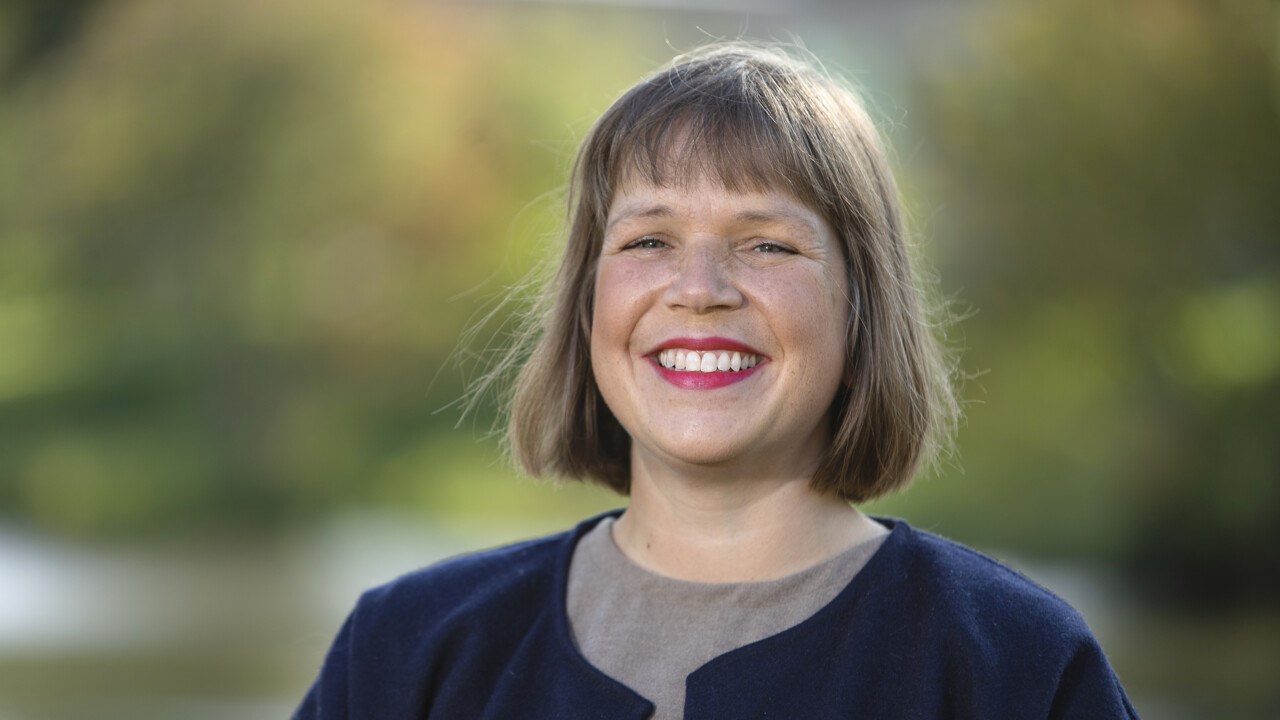Four questions to researcher Ellen Bushell - new Swedish Young Academy member
Dr Ellen Bushell joined MIMS as a group leader in 2018. In the autumn of 2020 it was announced that she had been elected as a new member of the Swedish Young Academy.

In this article, originally published by Umeå University, Ellen describes what becoming a member of the Swedish Young Academy entails, and how the process came about.
How does one become a Swedish Young Academy member?
“The young academy is a global movement and national young academies exist in many different countries, with a global young academy gathering cross-disciplinary early career academics from all over the world. The Swedish Young Academy was formed by initiative of the Swedish Royal Academy of Sciences in 2011 and has been an independent foundation since 2013. The Academy currently consists of 37 elected members that each serve for five years”. “Election into the Academy is through an annual competitive open call, where each applicant is evaluated based on academic merit as well as interest in and commitment to the Academy’s work. Short listed candidates are then invited to interview in front of the selection panel. The application is open to independent researchers within 10 years of receiving their PhD. You need to be based in Sweden and the working language of the Academy is Swedish, although many members do not have Swedish as their first language, so it is absolutely not only for Swedish nationals! In fact, international experience among its members is highly valued”.
What advantages and challenges come with this membership?
“The Academy is a working academy and all members are expected to actively contribute to its work. A pillar in how the Academy works is participation in four annual two-day meetings. Work is formally organised into three working groups (outreach activities, internationalization / cross-disciplinary research and research policy) and each member belongs to at least one working group. The biggest challenge with the membership is to use the five years you get to its full potential by getting stuck in, working actively with the issues that you are passionate about. And of course, fitting in the time demands of working for the Academy with your existing professional and private life. All Academy members juggle demanding academic careers with their commitments in the Academy, and often families with young kids, myself included. Therefore, the many activities of the Academy are made possible only by the support of our fantastic CEO and secretariat”. “Conversely, one of the biggest benefits of being an Academy member is not only its platform, but also the ring-fencing of one’s time to work on important things you are passionate about but can be difficult to make time for in the day-to-day grind of deadlines and responsibilities. And finally, it is an absolutely amazing opportunity to meet and network with young Swedish academics from a wide range of disciplines. The exposure to academic research from disciplines completely different from yours is surprisingly rare in the daily life of academics but incredibly inspiring. It completely changes your perception and understanding of the true breadth of academic research”.
What does this membership mean for you personally and professionally?
“I feel incredibly honored to be elected and felt uncharacteristically proud of myself at the inauguration! It is a fantastic opportunity to do some important work I care deeply about. I am passionate about outreach work. I believe strongly that as a scientist, my job is not only the scientific research, but also to engage with the wider community to make science and scientists more accessible and thereby enhance trust in science. This is incredibly important today more than ever with for example a troubling growing distrust in vaccines and doubt cast over human-induced climate change”. How important is it to communicate the value of research and science to young people? “The Academy runs an annual residential research course for students in the final year of high school (gymnasiet), they go into schools to play “Mundus” that allows students to explore a new planet by conducting research, arrange talks with researchers at film festivals and have even written a children’s book! I am super excited to go full in with these activities. I receive a lot of support from the Academy for doing these activities here in Umeå, such as school visits to play Mundus and in connection with the launch of the children’s book this coming spring. I also sees huge potential in working together with Curiosum, the newly opened outreach centre downtown Umeå. Ellen Bushell’s lab conducts research into how malaria parasites interact with their host. This is a critical concept in infection biology since for many pathogens, it is their interactions with the host that determines how infection progresses into disease. For example, the interaction between the Sars-Cov2 virus and our cells also determines infection outcome, as brought to light to the general public by the current pandemic. By better understanding these interactions at a molecular level, the hope is that we can design improved anti-malarial drugs and vaccines.
Learn More
The Nordic EMBL Partnership interviewed Ellen in early 2019 in an article 'Introducing Ellen Bushell'. You can learn more about Ellen and her research here.